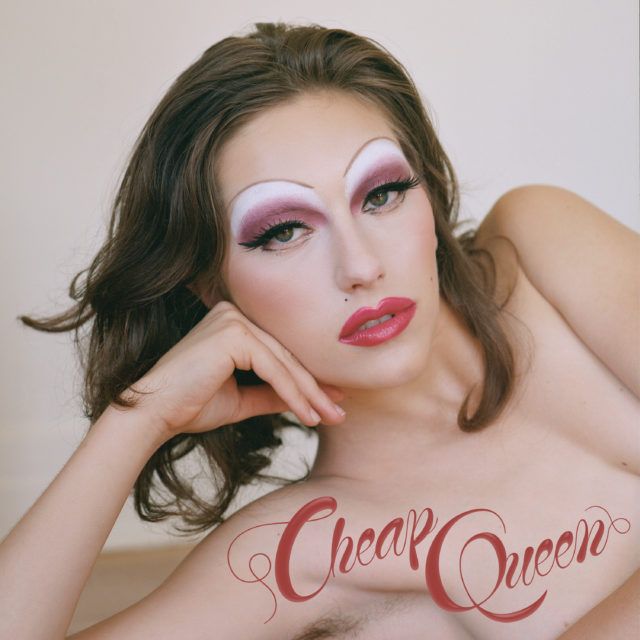King Princess’ ‘Cheap Queen’ is an exciting start for the artist

King Princess
Cheap Queen
Zelig Records · October 25, 2019
King Princess, a.k.a. 20-year-old Mikaela Straus, made a name for herself even before her debut album Cheap Queen. Being the daughter of Brooklyn’s Mission Sound Recording owner, she started recording her own music by age 11. Entering the game this early gave her the leg up she needed to mold her songwriting skill to a level above other musicians her age. Her first EP Make My Bed earned her a solid fan base and “1950” became a soaring hit single when Harry Styles tweeted a lyric from the pop song. Her songs speak to the LGBT crowd, giving them the queer pop music that’s been long needed.
“I was dealing with the most vulnerable year of my life,” said Straus, discussing the context of her debut album in an interview with Billboard. This vulnerability begins manifesting from the very first song “Tough on Myself.” The synthy energy that Straus often plays with on her songs mixes into insecure lyrics like “I get too tough on myself / Sitting alone, making fun of myself.” There’s a youth and honesty within her lyrics, making Straus feel more down to earth even though she was born into a privileged position. Her ability to ooze this vulnerability into many of the album’s touching songs is impressive. One of those songs, “Homegirl,” is a gentle love song about another girl she meets, nervous about her potentially forbidden feelings. “You taste like danger, but I feel so safe in your arms,” sings Straus against an endearingly simple acoustic strum and synth chimes. The lyrics are something that a lot of people connect to, but not something commonly heard. It’s part of the reason she has such a strong fan base: she writes the lyrics that people want to hear.
Straus hyped the song “Hit the Back” by tweeting that it was “the anthem for bottoms everywhere.” Not disappointing this claim, “Hit the Back” is an electric pop hit built around sexually submissive lyrics. It’s entertaining and brings color to the album, even with the slow start. It’s the kind of song that could be played in a club, accompanied by strobing lights and rushing adrenaline, but it’s also the kind of song that could be played at home alone when it feels like an empty living room needs to be turned into a dance floor. It’s easy for this track to stick in a listener’s mind, with lyrics catchy enough to sing on loop. This would seem annoying, except that the energy is so addictive that it’s fun to have the earworm. Because it was released as a single, it was a bit surprising to hear how slow every other song was in contrast. Consequently, “Hit the Back” refreshes the listener, but leaves more to be desired.
“Cheap Queen” on the album stands as one of the strongest songs and it makes sense that the album was named after it. The title refers to a term in drag where a queen kitchen sinks what she has to create her look. Straus seems more confident than a lot of other songs on the album. Since it’s an ode to friendship rather than a reflection of lovers or herself, making it easier to sense this confidence. The synths and samples peppered throughout the song puts the song through a filter that makes it sound a bit jazzier, a bit older. Many of the songs on this album, for that matter, feel like they belong in a contemporary jazz club. Straus strikes a balance between the alternative pop sound of Lorde or Lana Del Rey and the more 80s sounds of Cyndi Lauper or The Bangles.
King Princess fans waited for an album like this and Straus delivered. Cheap Queen plays silvery and smooth, tapping into the trend of echoing vocals and lo-fi sounding instrumentals. It would be interesting to see if Straus remains within this territory of alternative pop or tries to venture outside. Most of the album was slow, soulful, a build to the end where it opened up into something a little braver. Listeners could hope that King Princess’s future comes with a little more confidence and bravery. She played with a lot of sounds that could be explored further in future albums, creating an exciting start for Mikaela Straus, the queen (or King) of alternative pop.